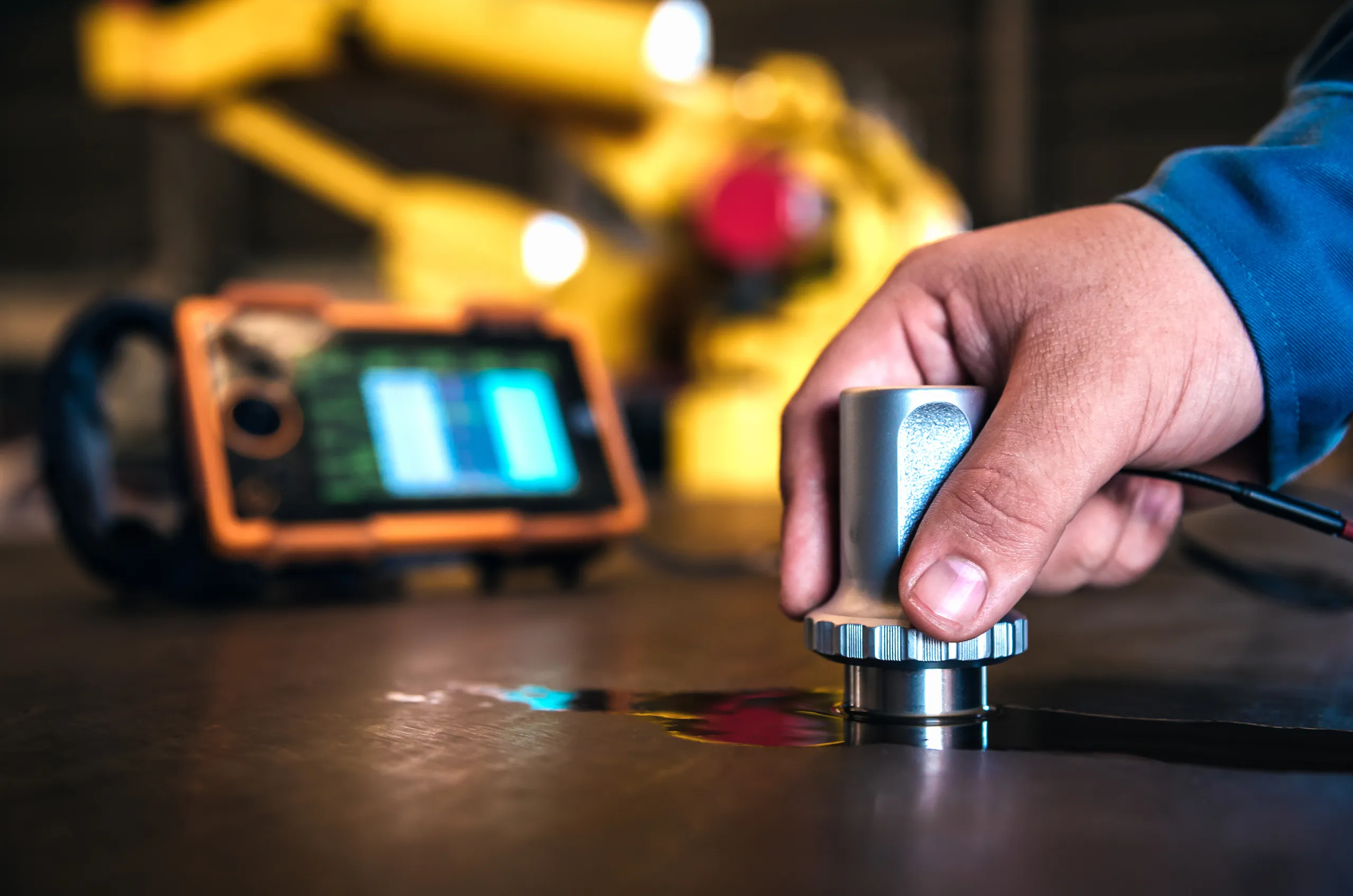FMVSS 216 Roof Crush Non Destructive Testing for Automotive Safety
The Federal Motor Vehicle Safety Standard (FMVSS) 216 specifies that a roof crush test must be conducted on every passenger vehicle manufactured in the United States. This test is critical to ensuring the structural integrity and safety of vehicles, particularly during accidents where the roof may experience extreme pressure or deformation.
The FMVSS 216 standard mandates that non-destructive testing (NDT) methods are used for this evaluation. Non-destructive testing allows for the assessment of a vehicle's roof without causing any damage to it, ensuring its structural integrity is preserved for further use and analysis. This method involves the application of advanced technologies such as magnetic particle inspection, ultrasonic testing, radiography, and eddy current testing.
The process typically begins with thorough preparation of the specimen, which includes cleaning the roof area free from any dirt or debris that could interfere with the testing results. The vehicle is then positioned in a specialized fixture designed to replicate real-world crash scenarios. This setup allows for precise simulation of forces and stresses expected during an accident.
Once the vehicle is properly aligned, the NDT equipment is applied. Magnetic particle inspection involves the use of magnetic fields to detect surface or subsurface defects on ferromagnetic materials. Ultrasonic testing uses high-frequency sound waves to evaluate material properties and detect internal flaws. Radiography employs X-rays or gamma rays to produce images that reveal structural integrity issues. Eddy current testing utilizes electromagnetic induction to identify conductive material discontinuities.
The data collected during these tests is meticulously analyzed using industry-standard techniques. Compliance with FMVSS 216 requires that the roof withstand a minimum force of 5,000 pounds per inch squared (psi) in accordance with ASTM D793-18 and EN ISO 6480:2008 standards. This ensures that the vehicle meets the stringent safety requirements set forth by FMVSS 216.
The findings from these tests are documented thoroughly, providing quality managers, compliance officers, R&D engineers, and procurement teams with comprehensive insights into the vehicle's structural integrity. This information is crucial for continuous improvement in automotive design and manufacturing processes. By adhering to FMVSS 216 and utilizing advanced NDT techniques, manufacturers can ensure that their vehicles meet the highest safety standards.
Non-destructive testing not only ensures compliance with FMVSS 216 but also contributes significantly to the overall quality assurance process in automotive manufacturing. It allows for early detection of potential issues, enabling timely corrective actions and minimizing risks associated with structural failures during accidents. This approach enhances public safety and reinforces consumer trust in vehicle manufacturers.
In summary, FMVSS 216 Roof Crush Non Destructive Testing is essential for ensuring the structural integrity of passenger vehicles. By leveraging advanced NDT methods, this testing process provides critical data that supports continuous improvement in automotive design and manufacturing processes. Compliance with these standards helps protect public safety while fostering trust between manufacturers and consumers.
Benefits
- Compliance Assurance: Ensures strict adherence to FMVSS 216, a critical standard for vehicle safety.
- Quality Improvement: Identifies potential weaknesses in the roof structure early, allowing for timely corrections.
- Enhanced Safety: Provides data that supports continuous improvement in design and manufacturing processes.
- Consumer Confidence: Builds trust by demonstrating commitment to high safety standards.
Eurolab Advantages
At Eurolab, we pride ourselves on delivering top-tier automotive testing services that are second to none. Our team of experts is well-versed in the latest industry standards and practices, ensuring accurate and reliable results for FMVSS 216 Roof Crush Non Destructive Testing.
We offer comprehensive support throughout the entire process, from initial consultation to final report generation. Our state-of-the-art facilities are equipped with cutting-edge NDT equipment that guarantees precise measurements and detailed analysis. This setup allows us to provide accurate data that can be used for continuous improvement in vehicle design and manufacturing processes.
Our experienced staff is dedicated to ensuring that every test conducted meets the highest quality standards, providing you with confidence in your testing results. We also offer tailored solutions based on specific project requirements, making sure our services align perfectly with your needs.
In addition, Eurolab's commitment to excellence extends beyond just meeting FMVSS 216 compliance; we strive for continuous improvement within the industry by staying abreast of emerging trends and technologies. This proactive approach ensures that our clients receive not only compliant results but also insights into how they can further enhance their products.
Choose Eurolab for your FMVSS 216 Roof Crush Non Destructive Testing needs, knowing you're working with a partner who understands the importance of safety and quality in automotive manufacturing.
Environmental and Sustainability Contributions
By ensuring that vehicles meet rigorous safety standards like FMVSS 216, we contribute to safer roads and reduced risk of accidents. Safer vehicles mean fewer injuries and fatalities on the road, which is a significant step towards promoting environmental sustainability.
The FMVSS 216 Roof Crush Non Destructive Testing also supports sustainable manufacturing practices by identifying potential issues early in the production process. This early identification allows manufacturers to make necessary adjustments before production runs, reducing waste and minimizing environmental impact associated with rework or scrap.
Moreover, adhering to FMVSS 216 ensures that vehicles are designed for longevity, which aligns with broader sustainability goals. Vehicles that meet these stringent safety standards tend to have better overall performance over time, contributing positively to resource efficiency and reduced carbon footprint throughout their lifecycle.
In summary, Eurolab's commitment to FMVSS 216 Roof Crush Non Destructive Testing supports not only immediate safety but also long-term sustainability objectives. By adhering to these standards, we help create a safer driving environment while promoting responsible manufacturing practices that benefit both people and the planet.





